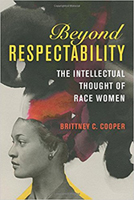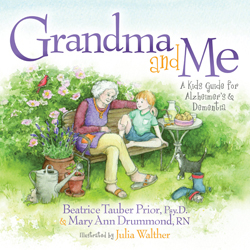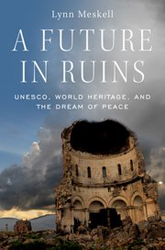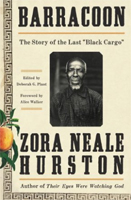What's on Your Summer Reading List?
Rutgers faculty and staff share titles they're eager to tackle

The coming of summer brings days at the beach, travels to distant venues, barbecues – and books. Here are some of the choices Rutgers faculty and staff members will tackle with their precious reading time now that the spring semester is over.
Marcie Aboff, administrative assistant, University Communications and Marketing: One of the books I am looking forward to reading this summer is Calypso by David Sedaris. I’ve read some of his other books and love the humorous, and often moving, collection of essays about his family, life, and the people he meets along the way. This new book features his observations of middle age and mortality. He buys a beach house on the Carolina coast longing for relaxing vacations in the sun with his family and those he loves most.
Grace Agnew, special adviser for strategic initiatives, Archibald S. Alexander Library, New Brunswick: The book I am looking forward to reading is Haiku in English: The First Hundred Years, edited by Jim Jacian, Philip Rowland and Alan Burns. Haiku as a form of poetry is something I have been frankly dismissive toward for a long time. Then I stumbled on some amazing Haiku poems on Twitter in celebration of International Poetry Day. As a reader, I appreciate the inflexible limit, because I know that age, tweeting and Netflix have probably shrunk my attention span to the size of a raisin. Haiku comforts me in that I can still discover the whole universe in a poem that fits comfortably inside a 280-character tweet.
Zahra Ali, assistant professor of sociology and anthropology, Faculty of Arts and Sciences, Newark: Beyond Love, by the Iraqi author Hadiya Hussein, translated from Arabic by Ikram Masmoudi, is a powerful story about the (im)possibility of love in exile. The novel takes place in and outside the Iraq of the early 1990s. Through the story of several Iraqi women, it narrates the tragedy of the economic sanctions, as well as the courageous 1991 uprisings against the authoritarian regime and its violent and unspeakable repression. Through the story of Nadia, the main character, who has to flee Iraq and wait for her asylum status in Jordan, the author takes us in to an incredibly eloquent and moving reflection on love and loss.
Gloria Bachmann, professor of obstetrics and gynecology, Robert Wood Johnson Medical School, New Brunswick: As a physician who has had the privilege of caring for transgender and gender fluid individuals, reading Trans Studies: The Challenge to Hetero/Homo Normativities, edited by Yolanda Martinez-San Miguel and Sarah Tobias gives me an invaluable global perspective on gender. The book emphasizes the need not only for our full understanding of gender, but also our vigilance in righting a system that continues to marginalize and abuse trans and gender non-conforming people globally. The message of this book is clear: It takes all disciplines to move society as a whole in the full acceptance of all individuals regardless of their gender identity.
Douglas Blair, professor of political science, School of Arts and Sciences, New Brunswick: For my new course on income inequality, I acquired books this year faster than I managed to read them. The overage spills inevitably into the summer reading season, starting with Rutgers poet Evie Shockley’s semiautomatic; psychologist Keith Payne’s The Broken Ladder: How Inequality Affects the Way We Think, Live, and Die; and political scientist Virginia Eubanks’s Automating Inequality: How High-Tech Tools Profile, Punish, and Police the Poor. I am also setting sail with historian Maya Jasanoff in The Dawn Watch: Joseph Conrad in a Global World. Seeing his world is necessary, she argues, “because what Conrad had seen shapes what so many other people have seen since.”
Karen T. D’Alonzo, associate professor and associate dean for nursing science, School of Nursing, Newark: I read a lot every summer but always try to include at least three books: One: something that pertains to my research. Two: something that I read years ago but want to reread. Three: something that is for fun. So this year, I plan to read: Megan Carney’s The Unending Hunger: Tracing Women and Food Insecurity Across Borders; Viktor Frankl’s Man’s Search for Meaning; and Patricia Hampl’s The Art of the Wasted Day.
Stephen Danley, assistant professor of public policy and administration, Faculty of Arts and Sciences, Camden: I left the movie theater after Black Panther wanting more: more fiction in diverse settings, with challenging themes and deep cultural roots. That’s how I stumbled upon Dr. Nnedi Okorafor’s Binti series. The science fiction trilogy focuses on a futuristic, tech-savvy society with clear ties to African culture. It also wrestles with identity and how to stay true to oneself as your world gets bigger. I can’t wait to dig into the final offering, Binti: The Night Masquerade.

Daniel Hart, professor of childhood studies and psychology, Faculty of Arts and Sciences, Camden: Marilynne Robinson's What Are We Doing Here?, a collection of essays, is at the top of my summer reading list. Robinson is best known for a trio of novels, among them Gilead, for which she received the Pulitzer Prize. The novels explore suffering, community, character and transcendence in startlingly beautiful, deeply moving prose. I'm looking forward to reading What Are We Doing Here? to learn from Robinson's exploration of morality, education and personal meaning in the 21st century.
Patricia Hindin, associate professor, School of Nursing, Newark. I want to read The Female Persuasion by Meg Wolitzer, because I enjoy her writing and have not tackled her newest work. The work was in progress before the #MeToo movement became public, and the author confronts some aspects of sexual harassment in this novel. Then for some political reading, Fascism: A Warning by Madeleine Albright is on my list. I heard the former secretary of state discuss her book on television and her perspective and life experience working in the government should be an exciting read.

James Jones, assistant professor, African American and African studies, Faculty of Arts and Sciences, Newark: I am going to read Algorithms of Inequality by Safiya Noble. In the digital era, technology dominates our lives and technological firms play an increasingly powerful role shaping our social world. Search engines provide powerful tools to acquire information and knowledge; however, in Algorithms of Inequality, Noble exposes how search engines facilitate data discrimination. Her analysis reveals how racism is created, maintained and disseminated in the 21st century. At a time when technological firms like Facebook and Cambridge Analytica dominate our news feeds, it is important more now than ever to understand how data is acquired, consumed and maintained.

Kathy Sadowsky, assistant dean, School of Arts and Sciences Honors Program, New Brunswick: I look forward to rereading The Best We Could Do, a graphic memoir by Thi Bui, and the 2018 summer reading selection for the School of Arts and Sciences Honors Program. This is a beautiful book in terms of its themes, prose and imagery. It tells the story of a woman who escaped Vietnam as a young child and who is prompted upon the birth of her own child to explore her family roots. I look forward to having our students wrestle with ideas of immigration and identity, and I am also excited to examine how the graphic format of the work contributes to its storytelling.

R. VanNess Simmons, director, Confucius Institute of Rutgers, New Brunswick: The book I am perhaps most looking forward to is Thomas S. Mullaney’s The Chinese Typewriter: A History. In a talk in the Distinguished Lecture Series hosted by the Confucius Institute of Rutgers last year, Mullaney gave a vividly fascinating presentation on the rise of China as a global tech powerhouse. He wove together a captivating overview of the interplay between China’s intractably complex script and the various technologies that have been harnessed to tame it for today’s keyboard dominated world.
Angelo Soto-Centeno, assistant professor, Department of Biological Sciences, Newark: I am a scientist interested in speciation and extinctions, two important areas for understanding the world's biodiversity. This summer I can't wait to read Christopher Kemp's The Lost Species: Great Expeditions in the Collections of Natural History Museums. This book highlights the process of discovering new species that have remained unstudied by scientists in natural history collections. Kemp perfectly shows how these scientists found and described the new species, and how this process offers a way to better understand the fauna and flora of our planet.